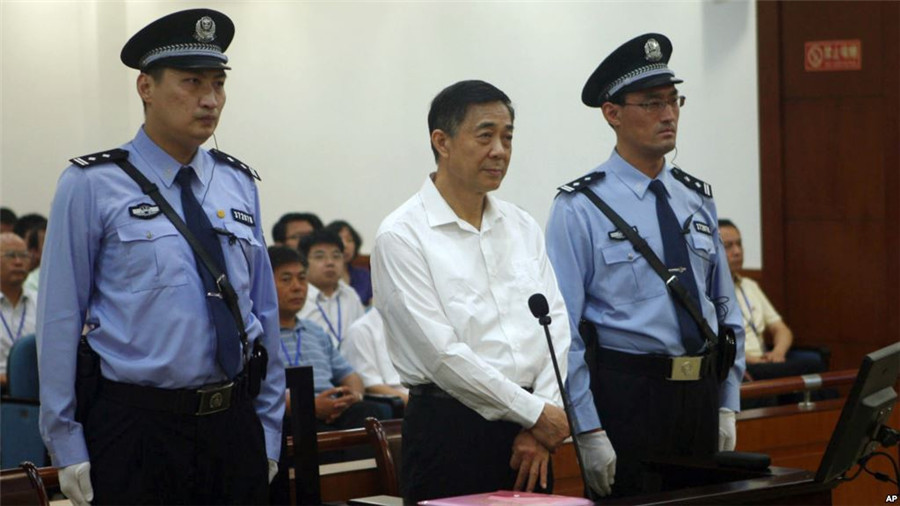10 predictions for China's economy in 2015
- By Zhang Rui
 0 Comment(s)
0 Comment(s) Print
Print E-mail China.org.cn, October 29, 2014
E-mail China.org.cn, October 29, 2014
Bo Xilai, former secretary of the Chongqing Municipal Committee of the Communist Party of China (CPC) and a former member of the CPC Central Committee Political Bureau, stands in court at Jinan Intermediate Court in Shandong Province for the first day of his trial on Aug. 22, 2013. [File photo] |
3. Anti-corruption efforts will be strengthened and the rule of law will strengthen the systemized anti-corruption even more.
Since the 18th CPC National Congress, anti-corruption campaign has been constantly breaking "traditions" and "taboos." Before the congress, 32 officials above the provincial level were taken down, but after the congress, more than 50 of such official rank were taken down, among them a former Central Committee Political Bureau member, a vice president of the Central Military Commission and a vice president of the Chinese People's Political Consultative Conference.
In 2015, the anti-corruption efforts may be strengthened while government expenses will be further reduced. Fighting corruption will be the new norm in China's economy, along with reform. Otherwise, one big "tiger" may fall today, but tomorrow more tigers will fight back. The reform must continue and the laws must be made to protect tiger fighters and make sure the big tigers have nowhere to escape to. It will turn the rule of man into the rule of law. As Wang Qishan, secretary of the Central Commission for Discipline Inspection, said in his inauguration: "We must cure the symptoms and the root causes of diseases at the same time. Now our focus is to cure the symptoms, which will win us some time to deal with the causes."
In the future, the central government will turn to face corruption under the rule of law, instead of the occasional anti-corruption campaigns. The rule of law is the essential way out in fighting corruption.







Go to Forum >>0 Comment(s)